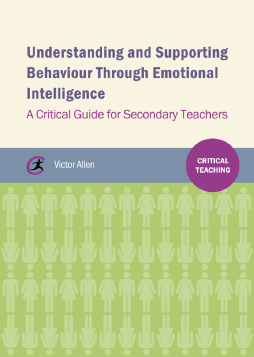
Additional Information
Book Details
Abstract
The behaviour of students is a common concern and challenge for those working in secondary schools. In addition there is continued government emphasis on behaviour as an important educational issue. This book, aimed at all secondary trainees and teachers, takes a fresh approach to the topic and looks at how an understanding of behaviour types and new findings on the development of the brain can increase emotional intelligence, improve classroom behaviour, promote stress-free teaching and so enhance learning in the secondary school. This accessible text combines both theory and practice, encourages reflection throughout, and offers a wealth of ideas and resources to help teachers develop their skills in this area.
Victor Allen is a freelance educational consultant who focuses on behaviour and leadership issues, advising on improving all aspects of emotional intelligence with both students and staff. Previously, he had a successful career within the business sector developing teams and leaders, and was an advisor for youth authorities working with persistent young offenders. He is involved in training teachers at the University of Northampton, mentoring Newly Qualified Teachers in a variety of schools and runs European training events on leadership, emotional intelligence and special needs within mainstream schools. He is a regular contributor to tespro (TES) on behaviour issues and in his spare time works with a semi-professional football team helping with the emotional aspects of the game.
I liked the way the book was written in a focused manner and the way it challenged the reader to take time to think and answer questions as they read - It has the potential to impact teacher thinking and actions.
Clare Morrish, Bath Spa University
he book is useful as it is written in quite a readable style and presents cases for consideration, so it isn't completely theory based. Also it asks my students to consider something they may not have thought about previously as they have largely been successful within the education system to be on the course.
Linda Carswell, University of Birmingham
